

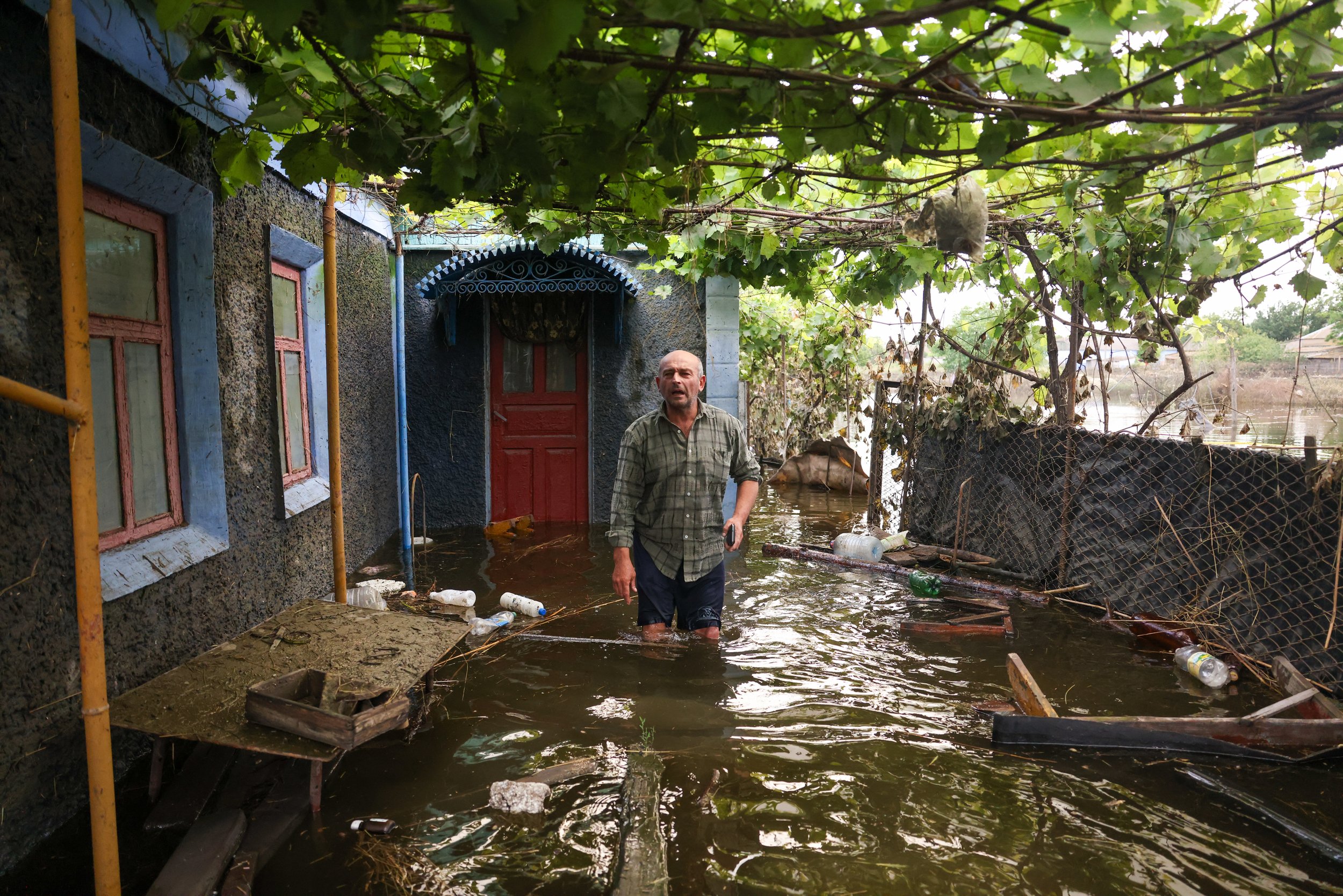
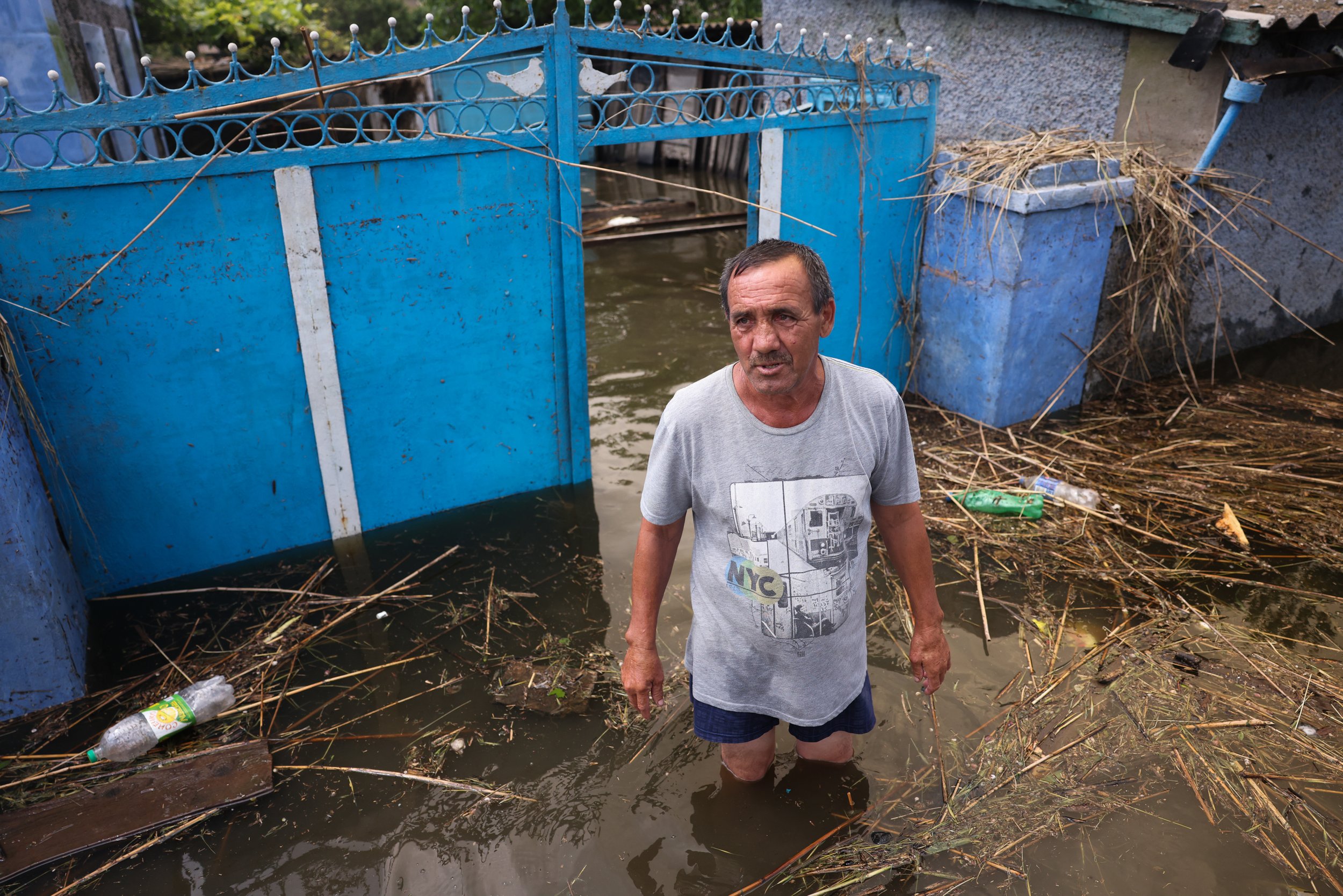
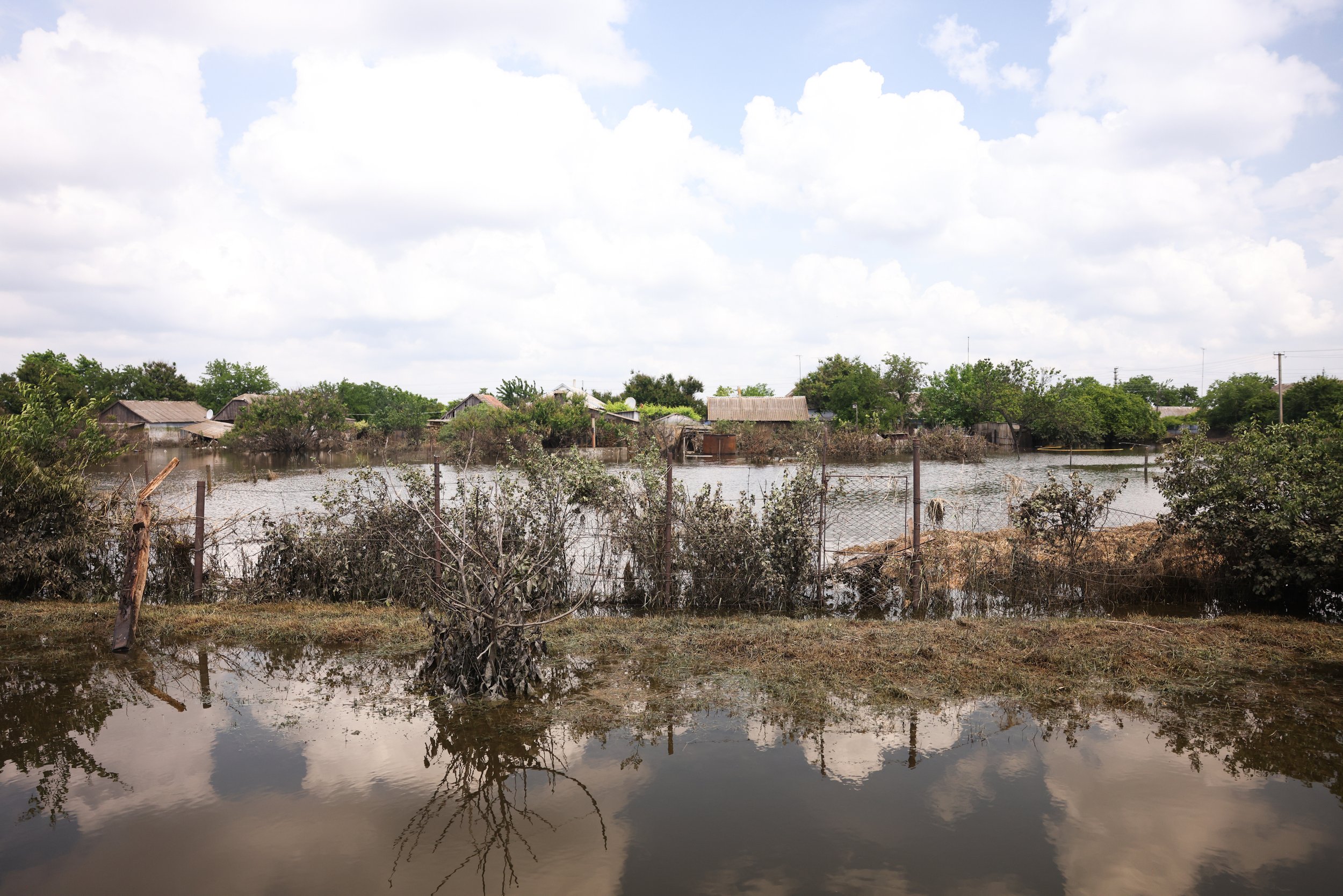

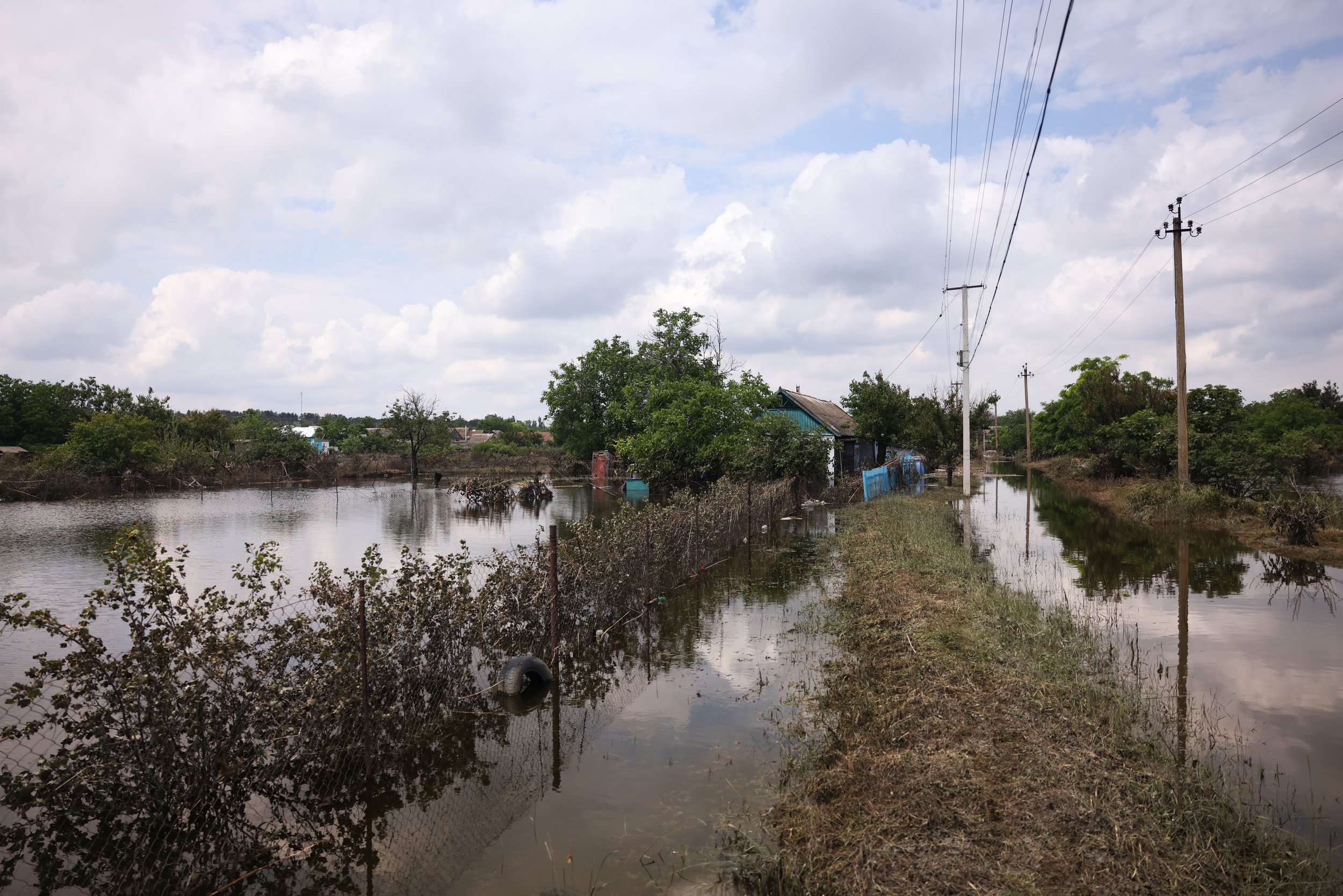
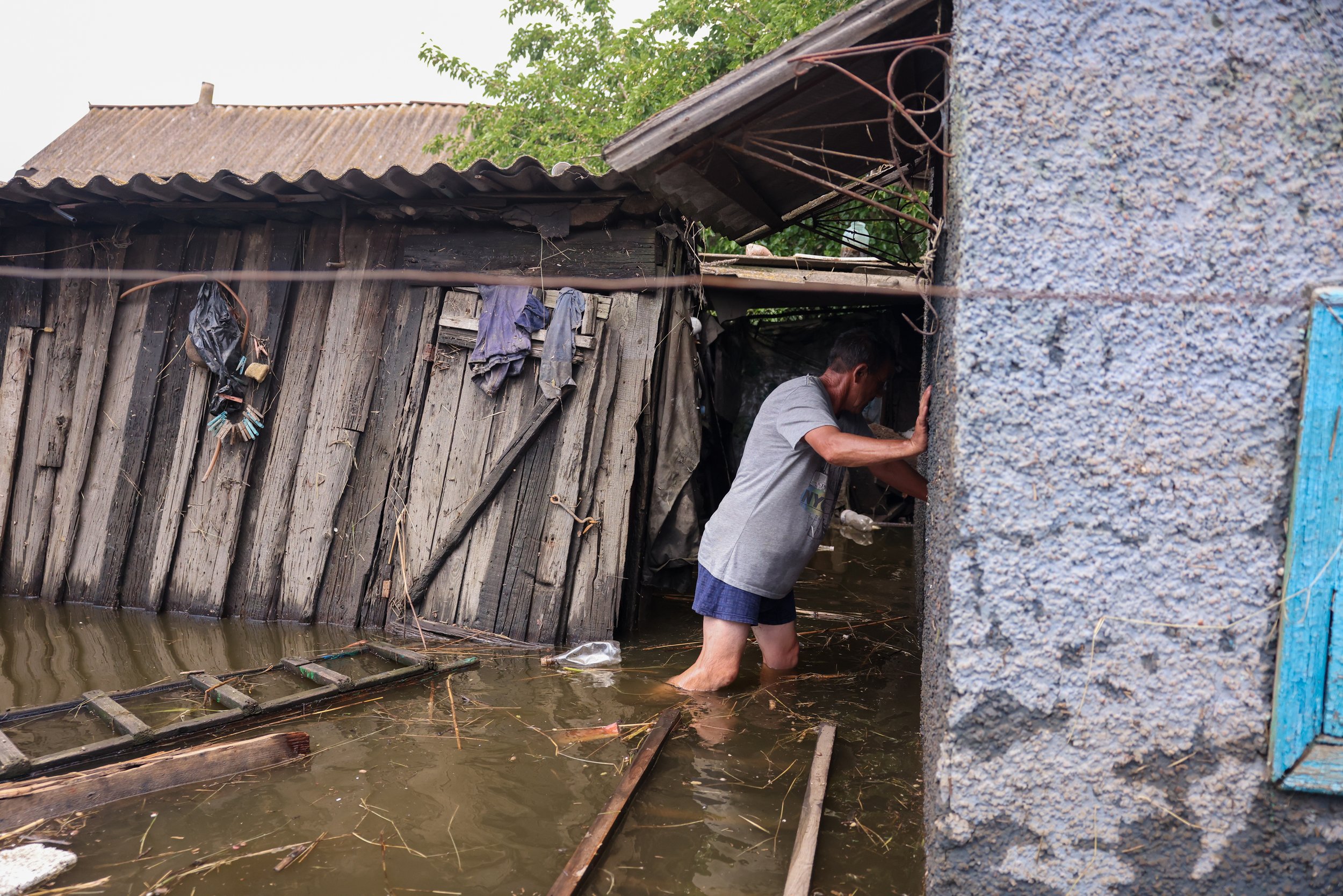
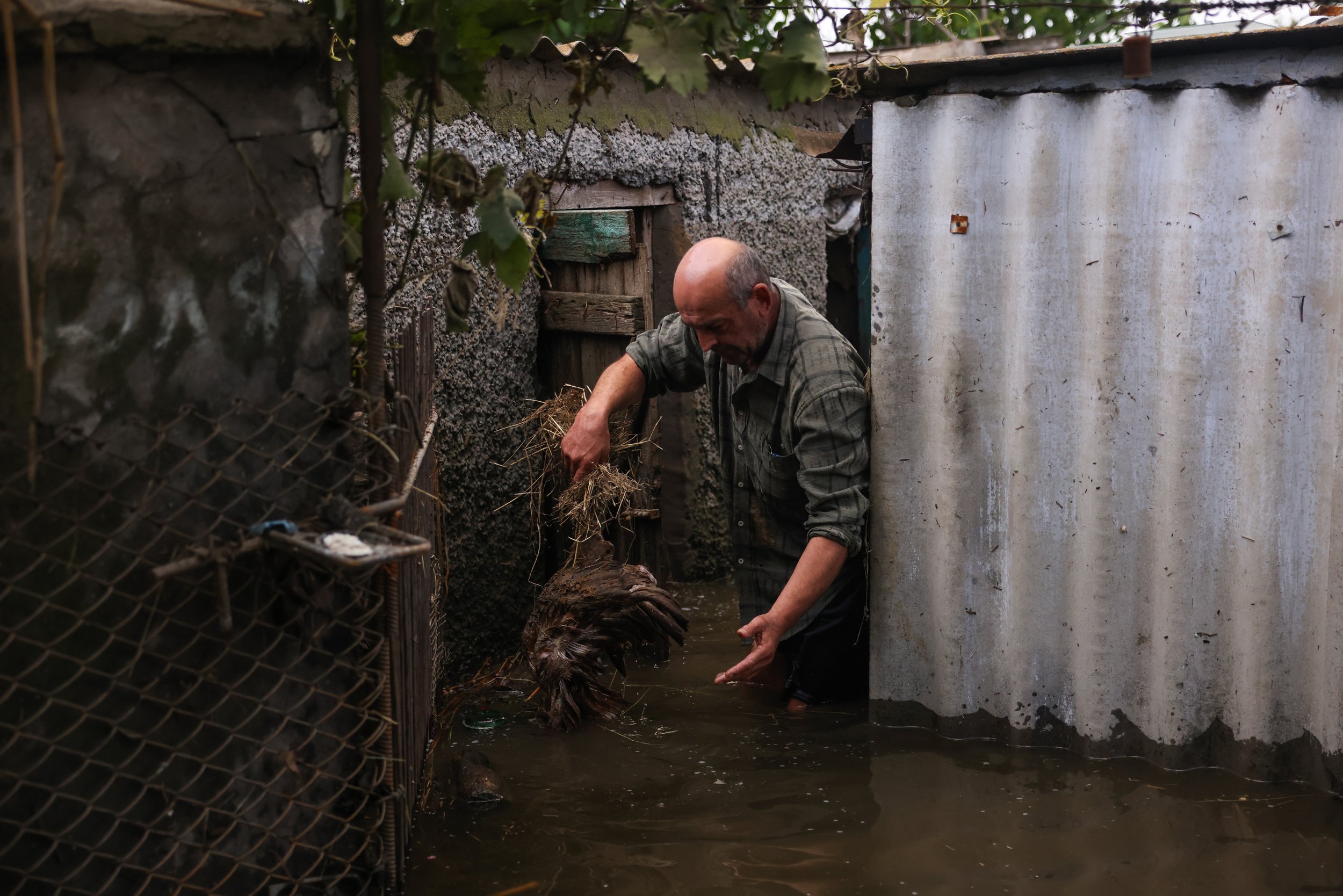
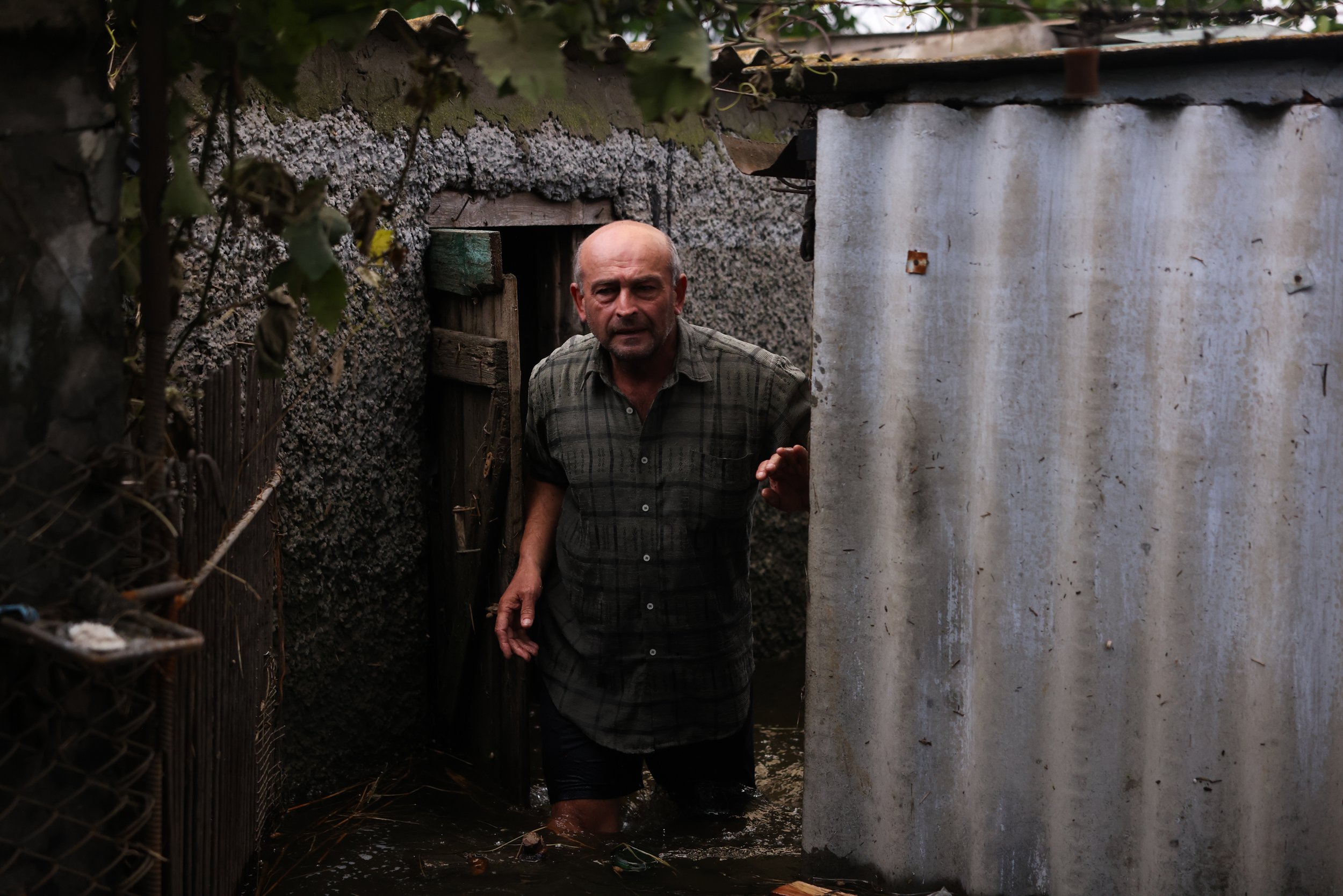
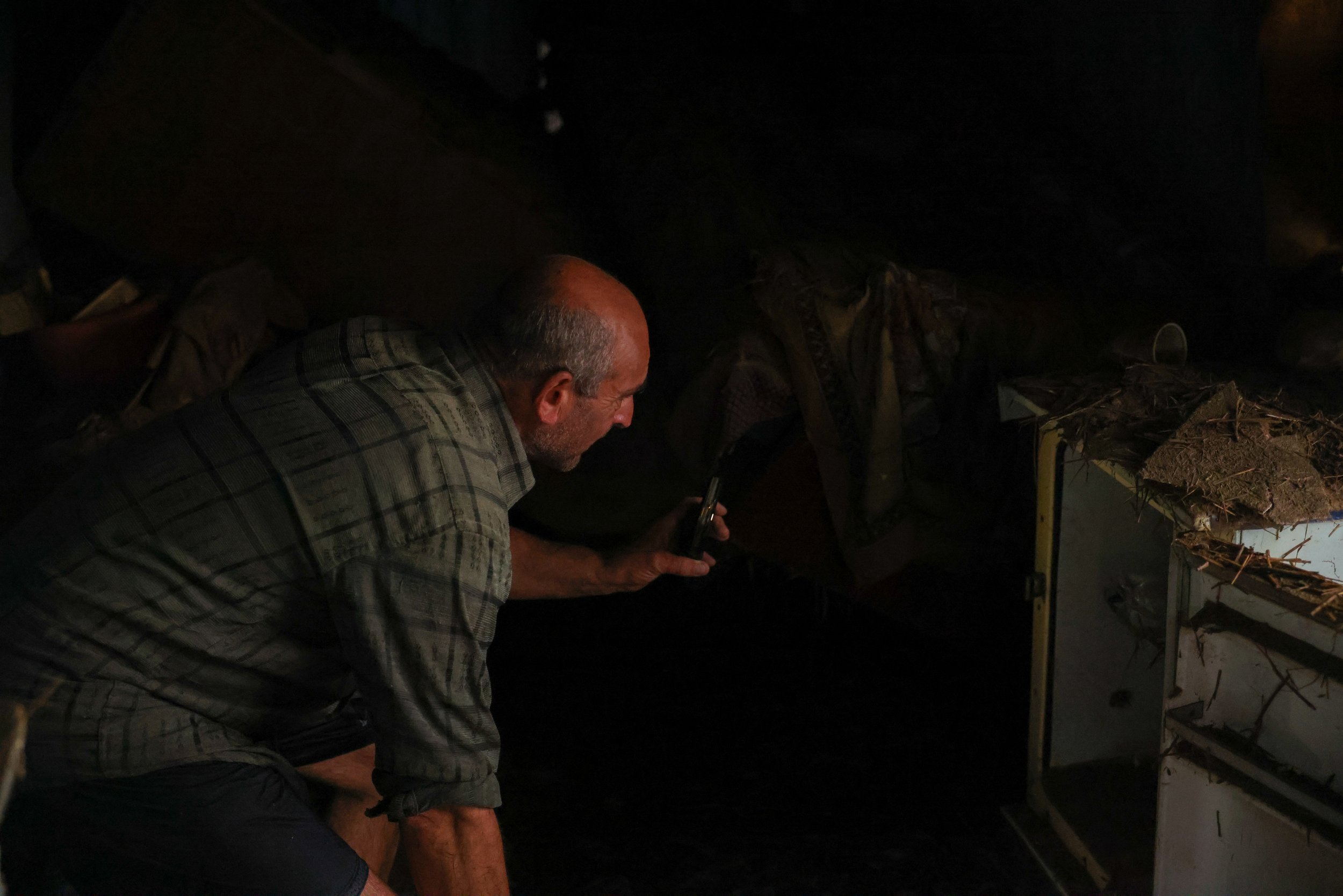
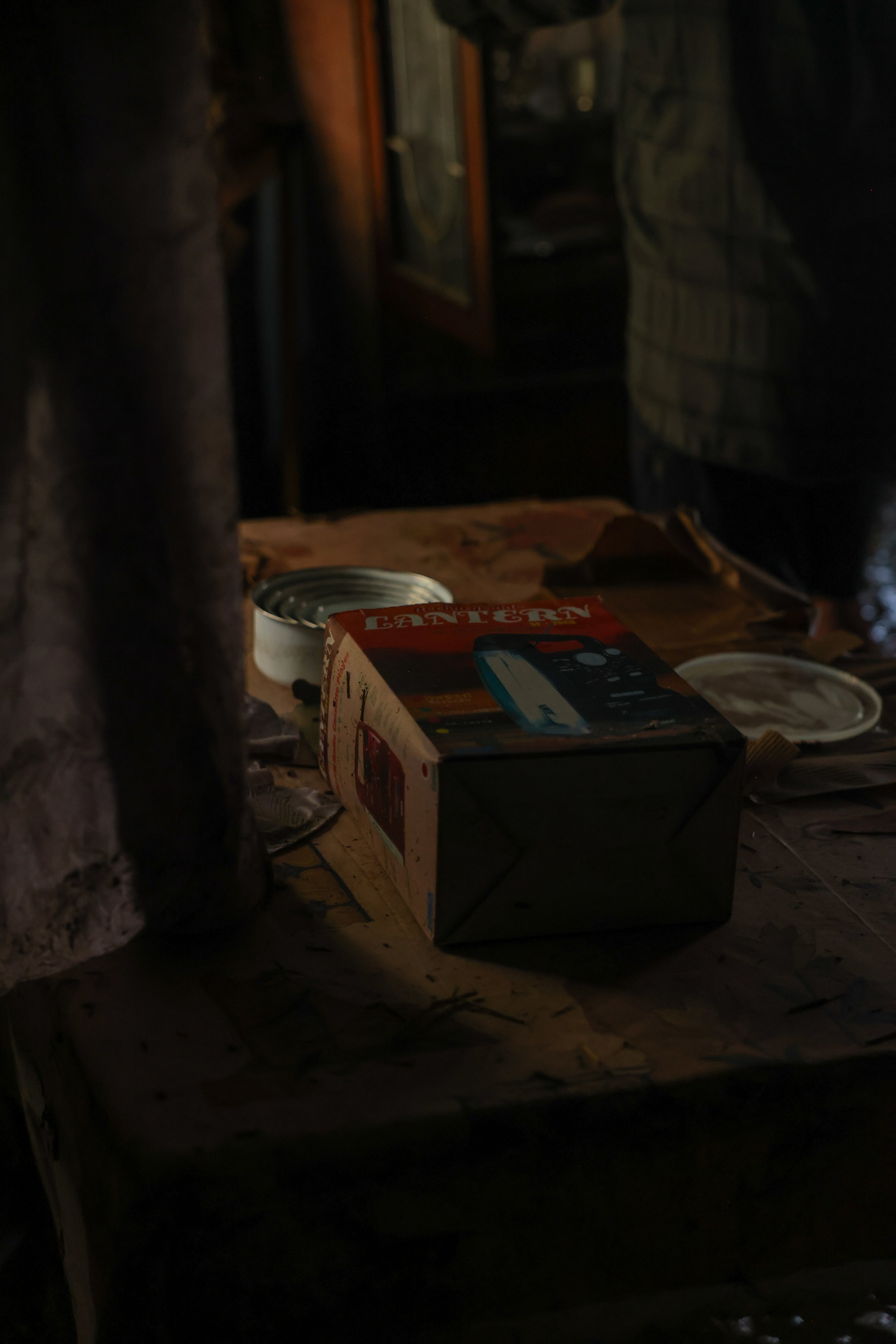
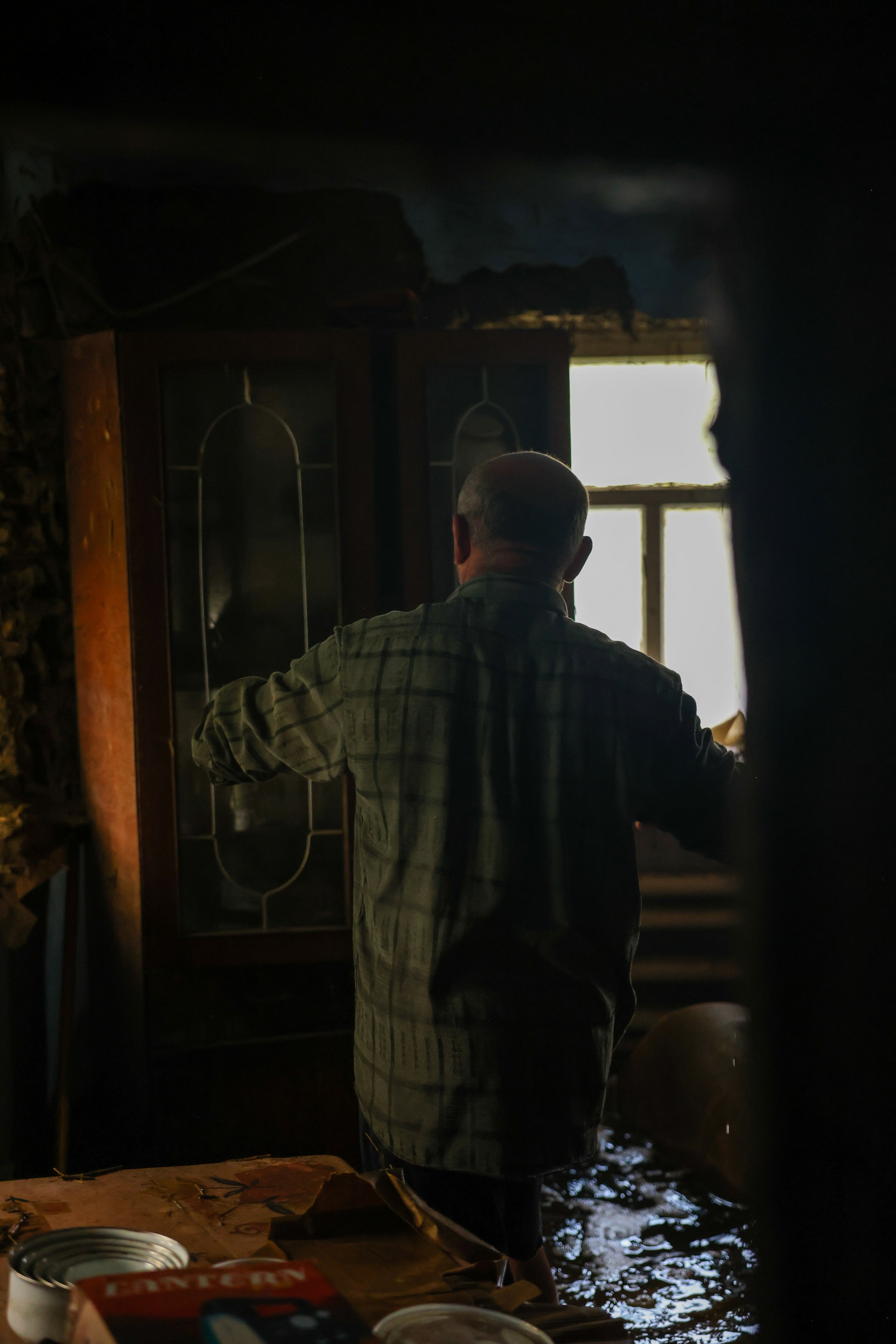
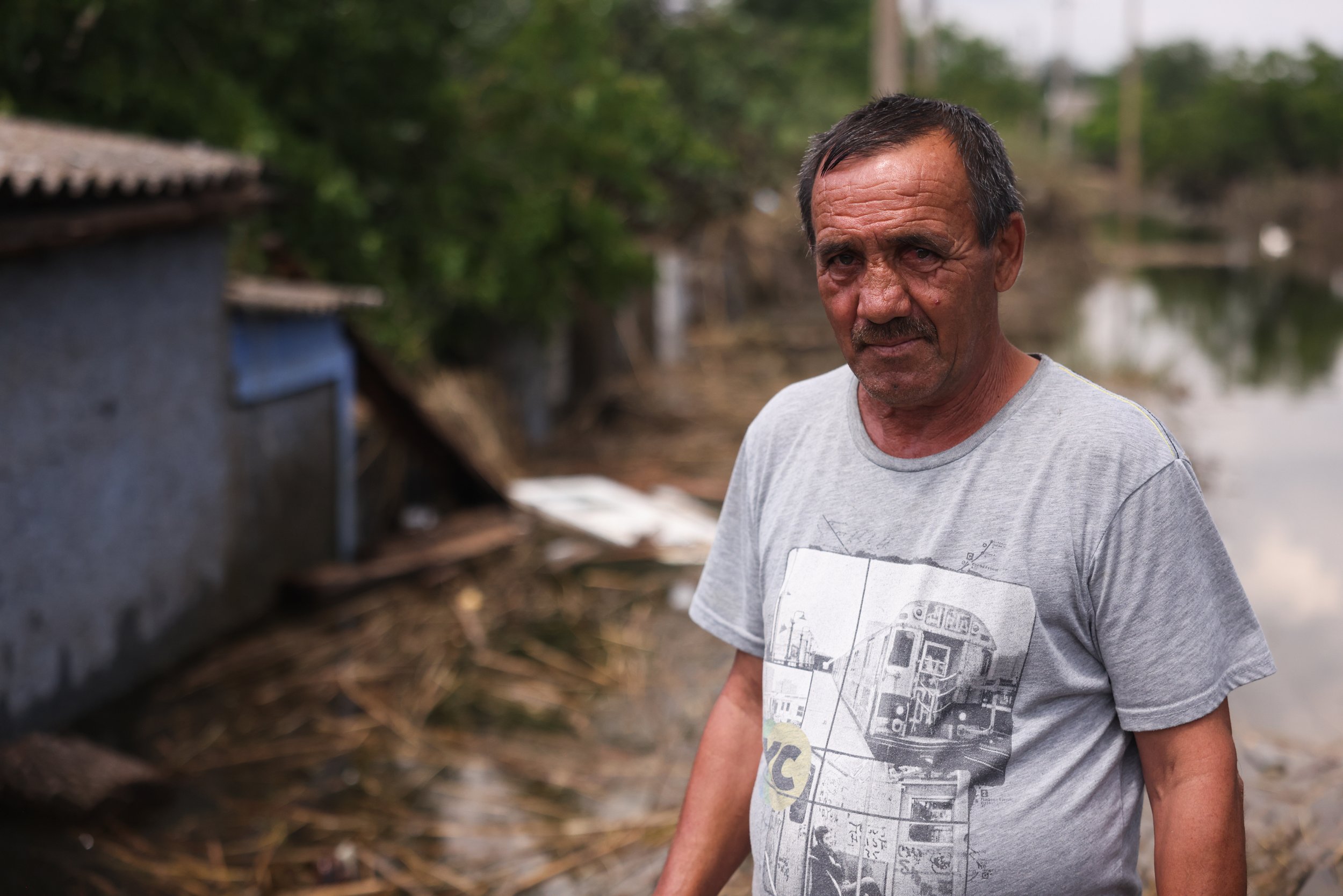








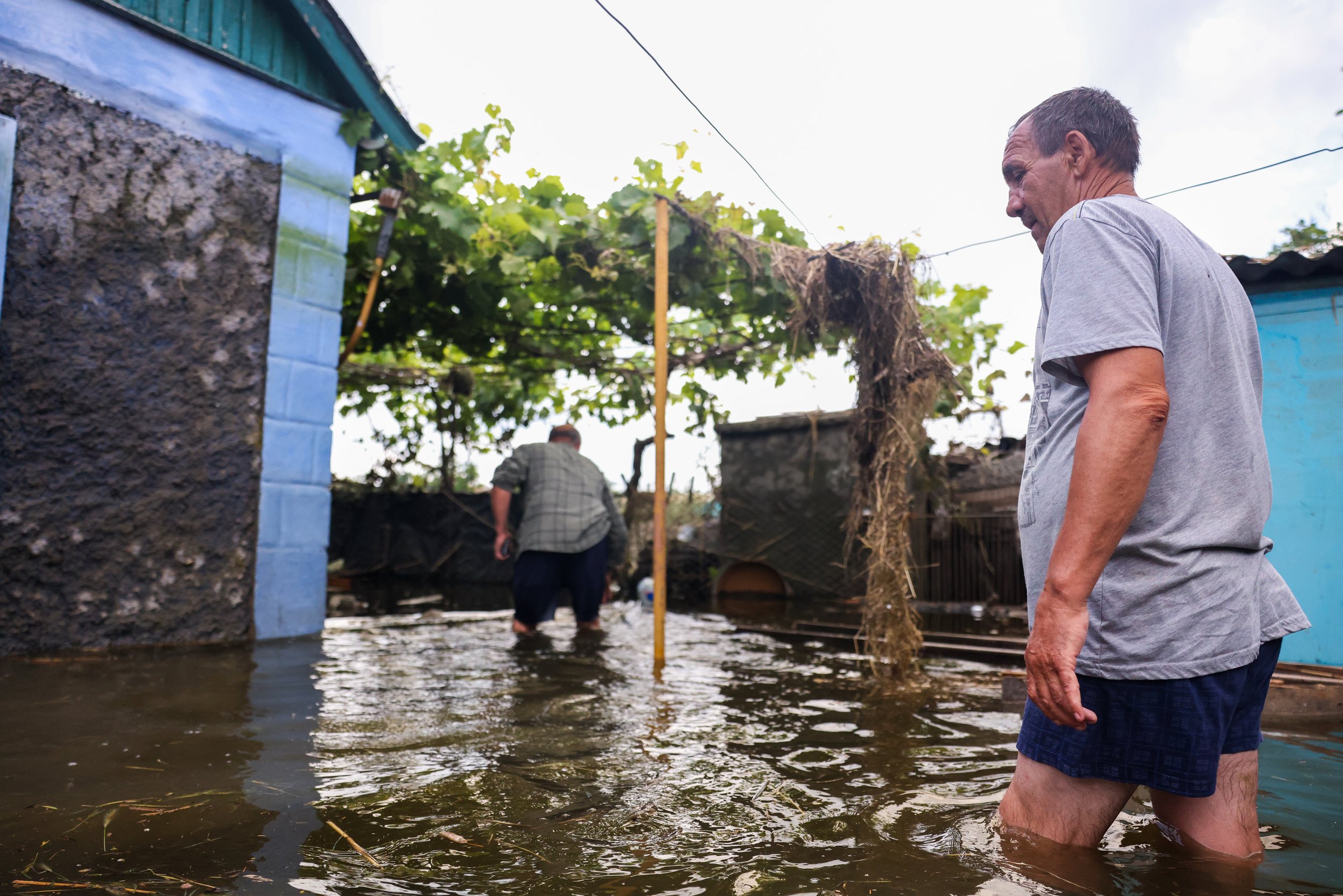
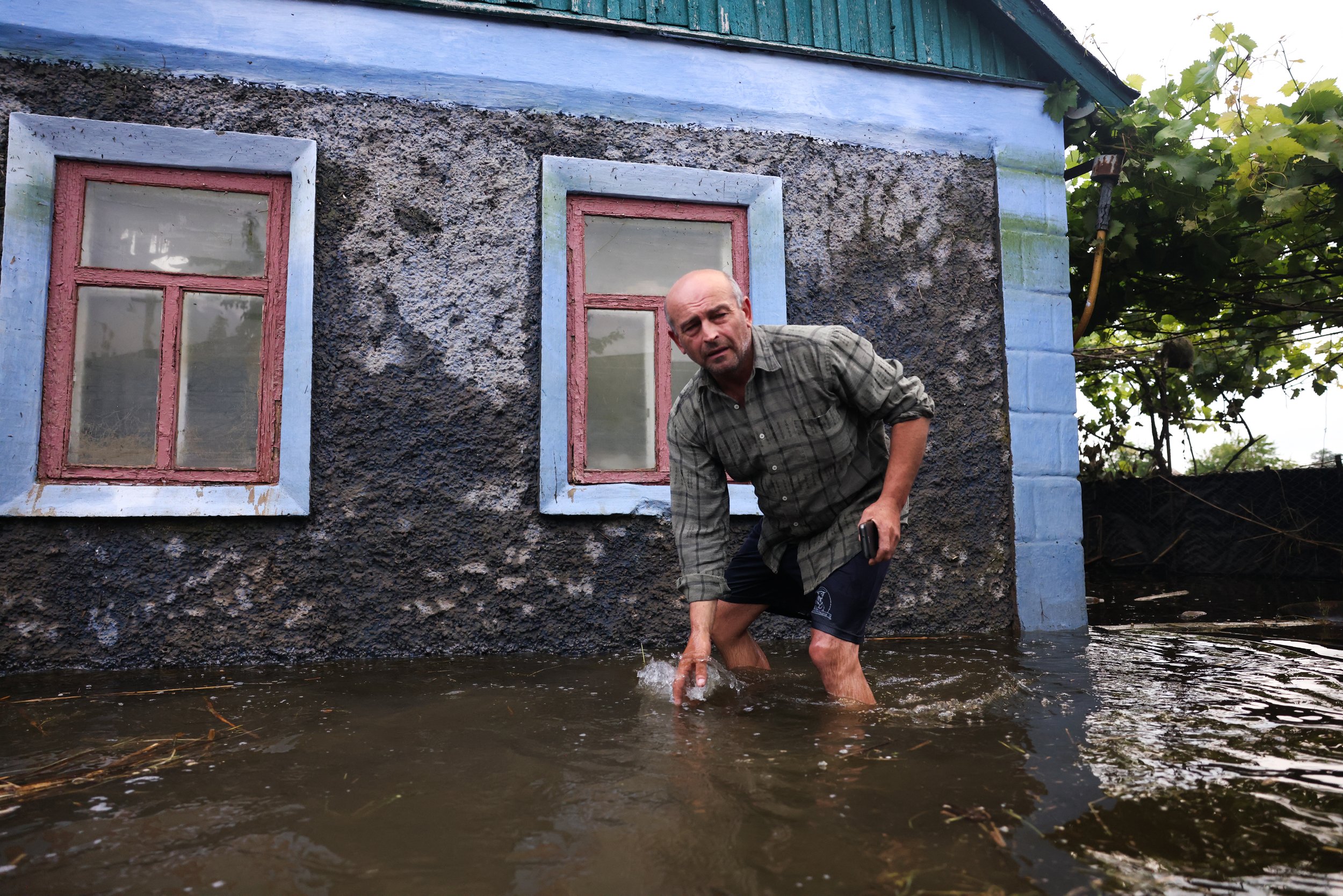
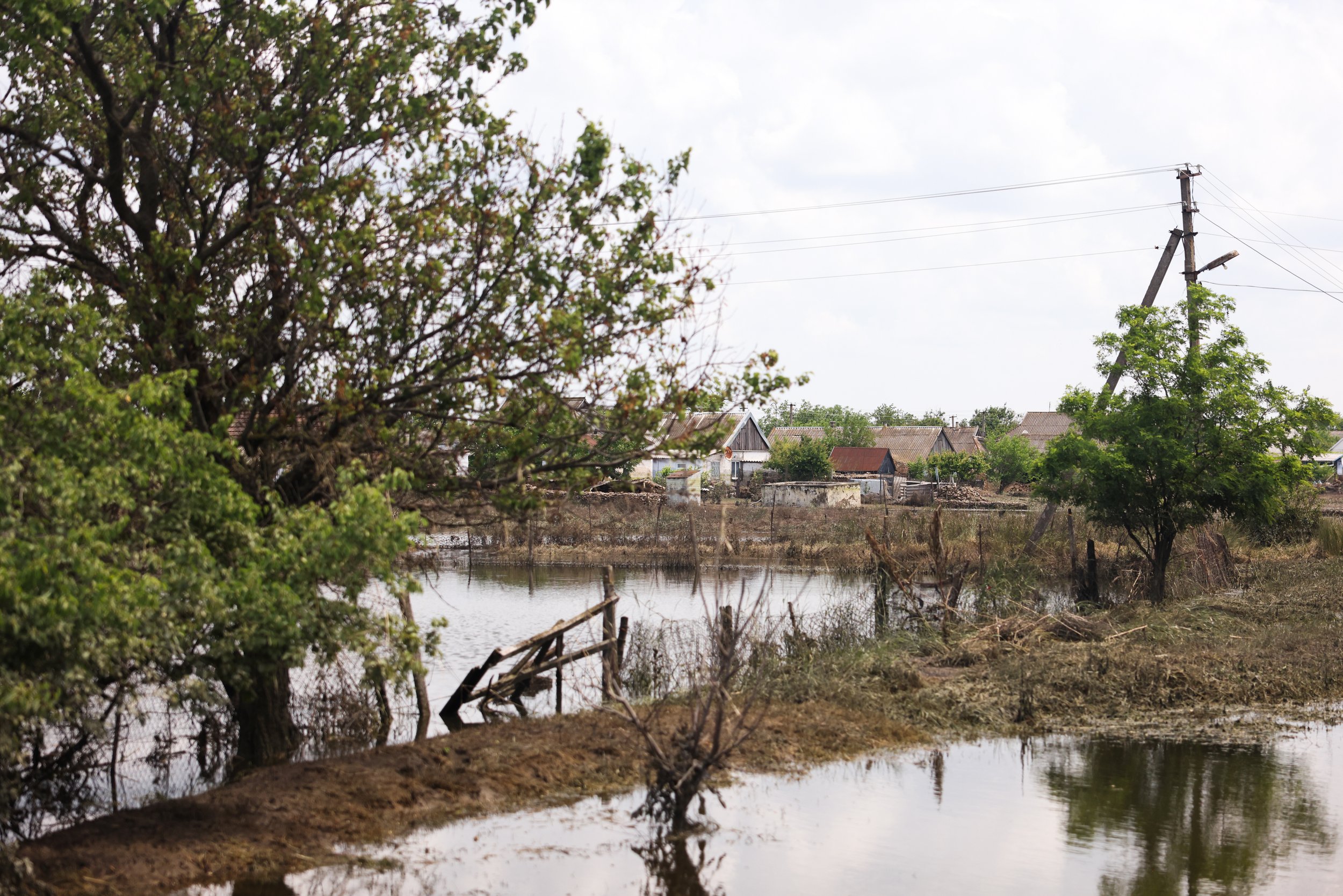



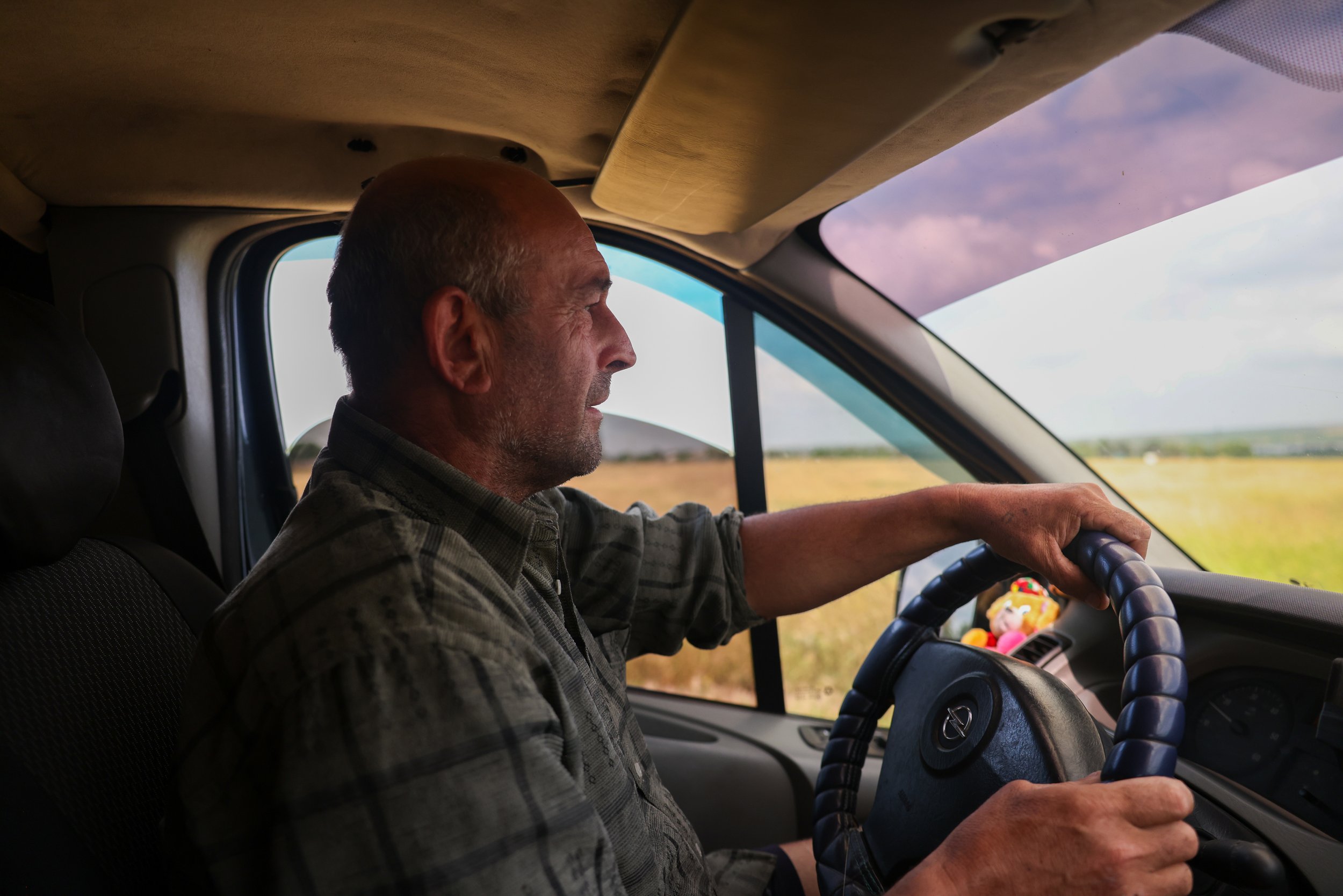
Everything in his mother's home was covered in brown, murky, tainted water. Water which, at one point, nearly surpassed the home's roof before slowly receding and revealing its devastating effects. His mother left the village when the war began, like many did. But soon, she became determined to return. The modest blue home was, after all, hers, and she wanted to spend her days there. She returned, but then the flood came and upended it all. The water inundated all of her possessions. Her bedroom furniture was sodden. The large reserve of potatoes and other non-perishables she had saved up for winter swept away. Her chickens drowned, floating listlessly in the deep brown water.
Inside he took out his phone to photograph the damage. Collecting data to submit to authorities for reparative processing. His friend accompanied him, pointing out small details in the chaos of broken furniture, possessions, dirt and grime. His mother was resolute in wanting to return to her home when the water emptied, her son repeated. She wanted to go home.
We didn't have the heart to tell him that this would most likely be impossible. To tell them that the water-logged walls, the straw ceiling insulation, dripping wet, and other hidden structural damages meant that without a serious investment in cleanup and repair, the home would be toxic. And for all the work and money spent to help the people of Ukraine, the damage from this war is so complete, so overwhelmingly total in these towns, that I imagine years will pass before it reaches the home of his mother. And for the elderly, years are a lifetime.
